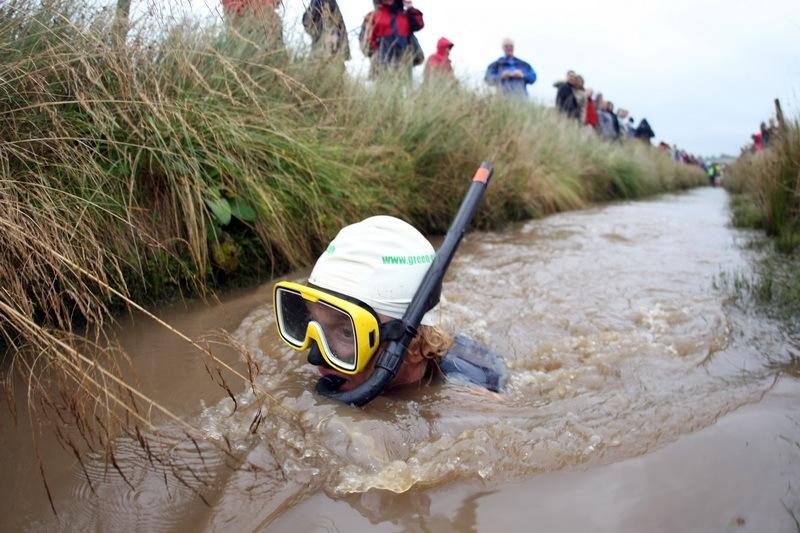Get Down and Dirty Welsh Style: Bog Snorkeling
November 16, 2011

For many of us, snorkeling is a lovely activity we do when vacationing on some distant tropical island. But for people in Wales, snorkeling is used as a way to separate the men from the boys in a sport called bog snorkeling.
Bog snorkeling involves three key ingredients, a snorkel, a bog (a muddy swamp) and an individual who has no shame embarrassing himself for the greater good of mankind.
Founded during an over-the-pub conversation in 1976 near Llanwrtyd Wells, Wales, bog snorkeling consists of competitors completing two consecutive lengths of a 60-yard water filled trench, cut through peat bog. Competitors must wear snorkels and flippers, while completing the course without using traditional swimming strokes, such as freestyle and breaststroke. The participants aim to complete the course in the shortest possible time relying solely on flipper power.
Nowadays bog snorkeling has a huge following in Wales; it is even the site of the annual World Bog Snorkeling Championship. First held in 1985, the event takes place annually in the dense Waen Rhydd peat bog. It now fetches up to 200 entrants each year. This year’s 2011 champion Andrew Holmes broke the world record, finishing the bog course in a minute and 24 seconds.
Fordham College at Lincoln Center (FCLC) students had interesting thoughts on this fascinating athletic activity. Some students weren’t keen on trying the sport but were intrigued by it. “I don’t think I’ll ever do it,” Katrine Alcantara, FCLC ’13, said. “Kind of reminds me of people in Iceland taking baths in mud for beauty, which is very interesting.”
Others found the sport to be “hilarious.” “I have to wonder who even thought this up, because if I were to see a swamp, the last thing I would want to do is put my body in it,” Alanna Parisi, FCLC ’12, said. “I would definitely try it as long as I get to wear a sumo wrestling costume; it just seems appropriate.”
Some students didn’t see the appeal in such a sport but would try it if given a chance. “I don’t see the point—it’s just falling into muddy water and swimming,” Evan McArthur, FCLC ’14, said. “But I would try it depending on how the water smelled.”
Despite its weird and unnatural character, bog snorkeling is slowly spreading internationally. Aside from Wales, Australia and Ireland have taken the sport further by incorporating bikes in the annual bog snorkeling triathlon. But it’s not just fun and games in bog snorkeling, the sport has also been used to raise money for charities such as Cystic Fibrosis Trust and the Motor Neurone Association.
So whether if it’s for a good cause or just plain competition, bog snorkeling takes a unique sport and goes to show that a little ordinary pub conversation can lead to a new fun-filled activity.









